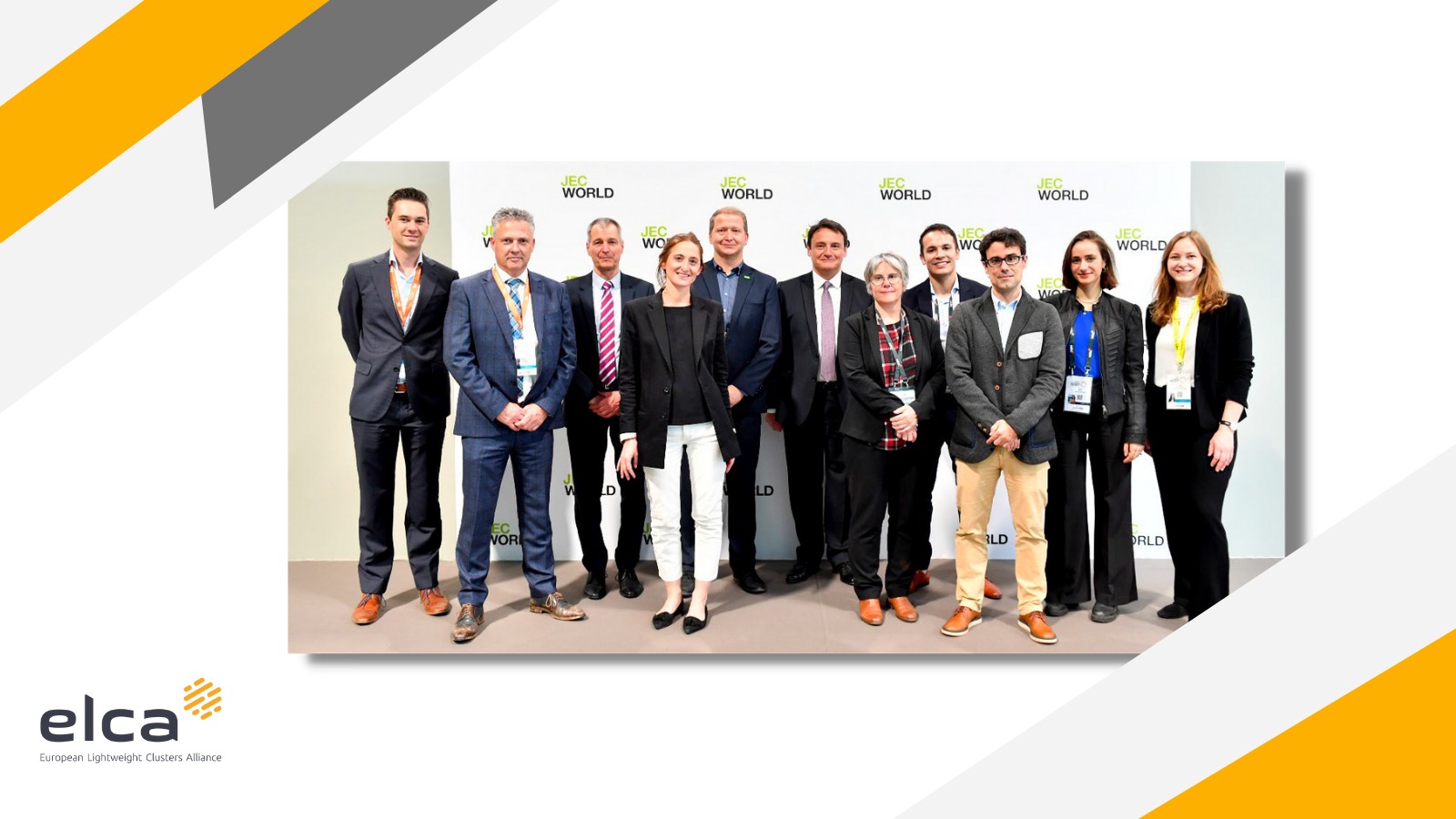Circular economy roundtable with experts
Last month the ELCA organised a roundtable event with key European experts in the Circular Economy of composites as a part of their activities in working group 6 (Circular Economy).
The participants involved together represented the entire value chain of composites materials. From research institutions developing new ways to recycle composite materials (Lavoisier) and new biobased solutions that can replace fossil-based raw material usage (Specific Polymers) to the development of more circular composites alternatives such as thermoplastics (RNANO). The end-user HP Composites could express the challenges for part manufacturers to integrate circular material into their products. Others were able to share their expertise on legal, technological, and economical factors of a Circular Economy Business Model (IPC, Eucia, TU Dresden, and AMZ Sachsen).

At the roundtable, the participants were able to discuss the current status of the circularity of composites, the challenges, and the next steps that have to be taken to integrate a holistic Circular Economy business model throughout Europe. Since the participants were all located in different parts of Europe and had dissimilar experiences and expertise, comparisons could be made and overarching challenges could be identified.
For example, Eucia stated:
Practical solutions are needed for today’s situation that maximise the value of re-use and should be LCA driven. This requires multiple solutions; such as the expansion of EoL processing facilities over Europe, the development of end-markets for circular composites EoL materials, schemes for collection and sorting, waste codes, and other rulings to allow cross-border re-use of composite materials.
SMEs that joined the roundtable stressed the importance of government support and funding enable them to further develop and upscale their sustainable solutions such as biobased materials, ecodesign of materials and parts, and recycling technologies.
Furthermore, IPC gave some interesting examples of French legislation and actions that allow for easier exchange and reuse of materials such as a government-instated secondary marketplace. It was becoming evident that France is setting an example for the rest of EU, by instating high-impact legislation for the composite industry: From the first of July 2022, 90& of total wind turbines will have to be reused or recycled.
We were honoured to host such an event that generated high quality content, with the aim of clarifying the current status of Circular Economy for composite materials.
More in dept context of the outputs of the event is to come!






